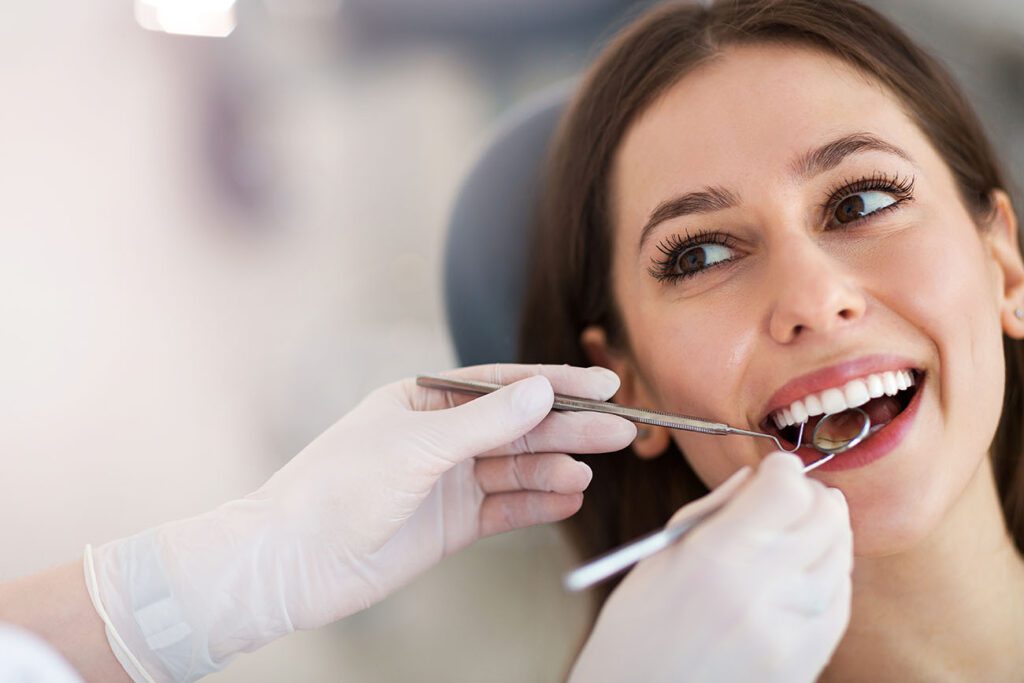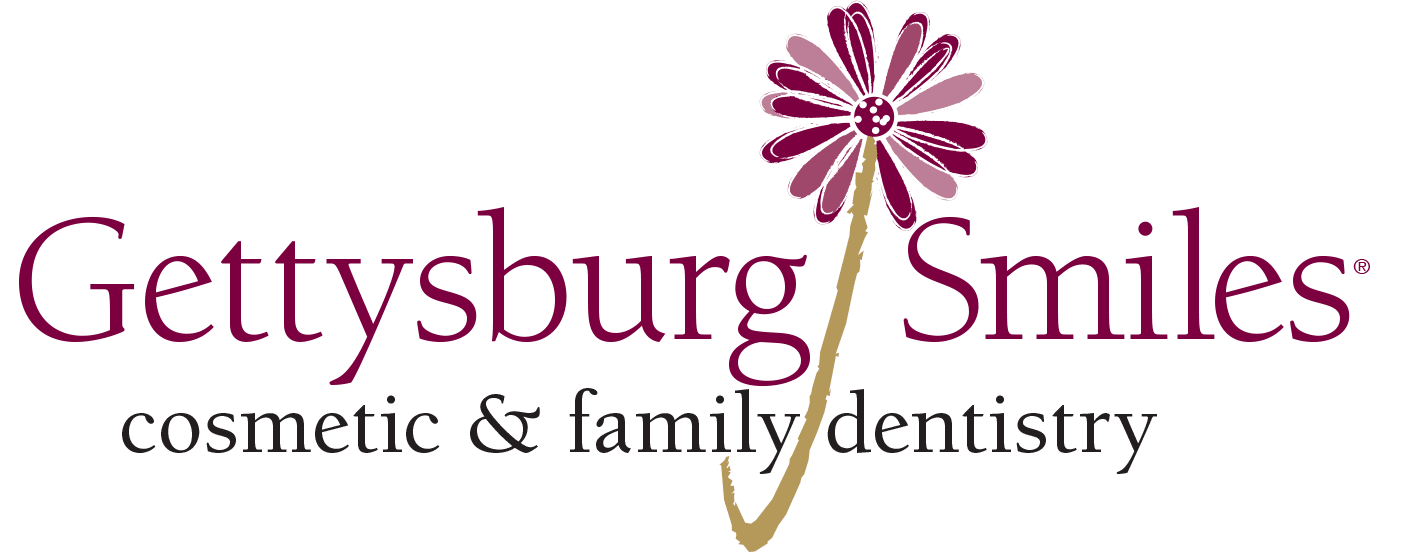Has it been some time since your last dentist visit? It may be time for a dental cleaning in our Gettysburg, PA, dental office. Dr. Rita Tempel‘s dental hygienists provide thorough cleanings to keep you in good oral health. But some patients may wonder why they should visit the dentist regularly. Cleanings aren’t just good dental maintenance; they also prevent problems like cavities, gum disease, and even dental abscesses.


Why are Dental Cleanings Important?
Tooth cleanings are a general dentistry service that we recommend patients get every six months. Biannual dental visits help Dr. Tempel keep track of your dental health and any emerging dental issues. The benefits of regular dental cleanings make regular appointments worth it for your oral health and overall health.
Keep You Healthy
Dental cleanings are an important part of keeping your teeth and gums healthy. Even if you brush and floss every day, there are areas in your mouth that are hard to clean at home. A professional teeth cleaning at Gettysburg Smiles helps remove harmful bacteria, plaque, and tartar that can build up over time and lead to bigger dental problems.
Clean Hard-To-Reach Spots
We use specialized dental cleaning tools that reach the tight spots between your teeth and below the gum line. These tools help us to clean your mouth more thoroughly than you can with a toothbrush or floss at home. This deep cleaning helps prevent tooth decay, gum disease, and bad breath.
Protect Your Gums
Cleanings don’t just keep your teeth healthy, they protect your gums too. Healthy gums are the foundation of a healthy smile. If plaque and bacteria are left on your teeth, they can cause your gums to become inflamed and infected. Over time, this can lead to gum disease, also called periodontal disease.
If we notice signs of gum disease, we may recommend a deeper cleaning called scaling and root planing. This treatment goes below the gum line to remove bacteria and smooth out the tooth roots. A dental deep cleaning can treat chronic gum disease or signs of gum recession.
The Steps of a Routine Dental Cleaning
A dental cleaning, also called a prophylaxis, is performed by our Registered Dental Hygienists (RDH). We recommend regular cleanings to keep your teeth and gums healthy. The steps of a regular dental cleaning include:
- A Physical Exam: Before the cleaning begins, our dental hygienist will take a close look inside your mouth using a small mirror. He or she will check your teeth and gums for any signs of cavities, swollen gums, or gum disease. If our hygienist notices anything that needs special attention, he or she will talk to Dr. Tempel before starting the cleaning. This quick exam helps make sure everything is safe and ready for the next steps.
- Removing Plaque and Tartar: The hygienist will then use a tool called a scaler to carefully remove plaque and tartar from your teeth. Plaque is a soft, sticky film full of bacteria that builds up on your teeth over time. If plaque isn’t cleaned away, it can harden into tartar, which is much harder to remove. Tartar can lead to gum disease if it’s left alone, so this step is important for your dental health.
- Gritty Toothpaste Cleaning: Once the tartar is removed, our hygienist will brush your teeth with an electric toothbrush and a special gritty toothpaste. This toothpaste is rough enough to scrub away leftover plaque and surface stains without hurting your teeth. You might hear a buzzing sound during this step, but it doesn’t hurt.
- Flossing and Rinsing Teeth: Even if you floss at home, our hygienist will floss make sure no food or plaque is left behind between your teeth. This step helps keep your gums healthy and makes sure every part of your mouth gets cleaned. After flossing, you’ll be asked to rinse your mouth to wash away all the loosened particles. Sometimes, the rinse will include fluoride to strengthen your teeth and fight off cavities.
Frequently Asked Questions
Read answers to questions about dental cleanings in Gettysburg, PA.
What is dental prophylaxis?
Dental prophylaxis is the professional name for a routine dental cleaning. The word “prophylaxis” means “to prevent disease,” and that’s exactly what this cleaning does. It helps keep your mouth healthy by removing harmful bacteria before they can cause damage.
Can I eat after a dental cleaning?
Yes! But if you got fluoride treatment, you need to wait 30 minutes before you eat or drink anything. This gives the fluoride time to soak into your teeth and protect them from cavities. If your teeth are feeling sensitive, eat soft foods and avoid anything too hot, cold, or crunchy for a few hours.
Do I need more frequent cleanings if I have gum disease?
Yes, Dr. Tempel will recommend that you visit her office every 4 months if you have gum disease. She’ll recommend a deep gum cleaning to keep your gums healthy and give her a chance to check on your progress. Keeping gum disease under control with scaling and root planing will prevent advanced gum disease.
Why do my gums bleed after a dental cleaning?
Your gums can bleed a little after a dental cleaning if its been a while since your last visit. Bleeding gums can happen when there’s inflammation or if your gums are sensitive. This often means there is a buildup of plaque or tartar near your gum line that’s causing irritation.
To help prevent bleeding gums, we recommend gently flossing between each tooth once a day before you brush. This helps remove plaque and food particles that can irritate your gums. At first, your gums might still bleed when you start flossing regularly, but with time, they should become healthier and bleed less. If your bleeding gums are a symptom of gum disease, we can discuss deep gum cleanings.
What is fluoride treatment?
If your teeth need extra protection, our RDH may apply a fluoride treatment at the end of the cleaning. We use a varnish that’s brushed onto your teeth. Fluoride helps make your enamel stronger and can prevent future tooth decay. It only takes a few minutes and is a great option for kids, teens, and adults who are more likely to get cavities.
How are children’s dental cleanings different than cleanings for adults?
Dental cleanings for kids usually focus more on prevention. Children are still learning how to brush and floss properly, so we clean teeth while also teaching kids how to brush and floss at home. Our dental hygienist will often take extra time to show kids how to brush and floss the right way.
We might also recommend extra protective treatments like fluoride or dental sealants. Fluoride helps make teeth stronger and fight cavities. Sealants are thin, protective coatings that go on the chewing surfaces of back teeth to keep out food and bacteria.
Schedule an Appointment
Get a dental cleaning in Gettysburg, PA. Call Dr. Tempel’s dental office today at (717) 853-1552. You can also request an appointment on our website.
